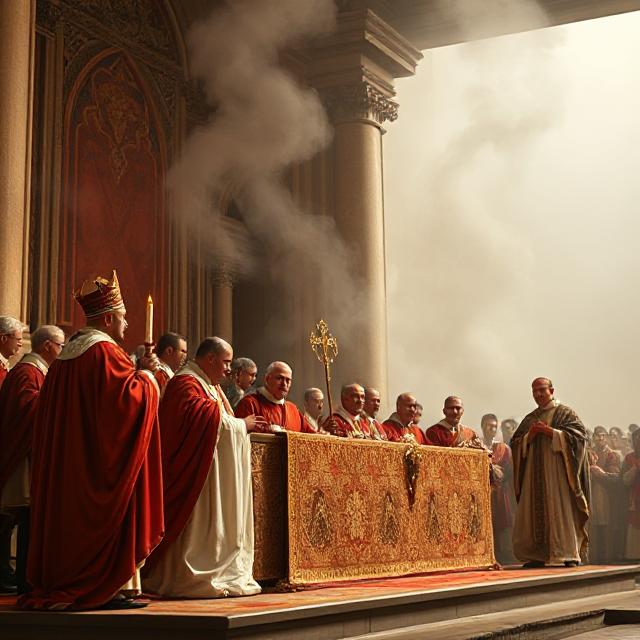"So, this whole conclave thing to elect a Pope – how long does it usually take? I mean, do they just stay in there until someone gets picked?"
That's a very good question! It's true that the conclave involves the cardinals being secluded until they choose a new Pope, but the actual length of time it takes can vary quite a bit.
Historically, papal conclaves could be quite lengthy. In the early days, with slow communication and political maneuvering, it wasn't unusual for elections to drag on for weeks or even months. The longest conclave on record took place in Viterbo in 1268–71, lasting nearly three years! This extremely long period without a Pope led to the formalization of the conclave process we know today.
However, modern conclaves tend to be much shorter. There are several reasons for this. Improved transportation means that cardinals from around the world can gather in Rome more quickly. Better communication and a greater understanding of the potential candidates beforehand can also help to streamline the process.
Still, there's no set time limit. A conclave can last just a few days, or it might take a couple of weeks. The key factor is how long it takes for the cardinals to reach the necessary two-thirds majority vote for a single candidate.
Each day, the cardinals can hold up to four ballots: two in the morning and two in the afternoon. If a Pope is elected on the first ballot, the conclave is very short indeed! But if the cardinals are divided in their preferences, it can take many rounds of voting to arrive at a decision.
Several things can influence how long a conclave lasts:
-
The number of cardinals: A larger number of cardinals can sometimes mean a wider range of opinions and a longer process.
-
The degree of consensus: If there's a clear frontrunner or a strong sense of agreement among the cardinals, the election can happen relatively quickly.
-
Political landscape: The complexities of the political situation within the Church can sometimes play a role, though cardinals are expected to vote according to their conscience.
-
Divine guidance: Ultimately, the cardinals see their task as seeking the will of God, and they may take the time they feel is necessary to discern that will.
While there's no way to predict exactly how long a conclave will last, the modern process, with its established rules and procedures, generally helps to ensure that a new Pope is elected within a reasonable timeframe.
